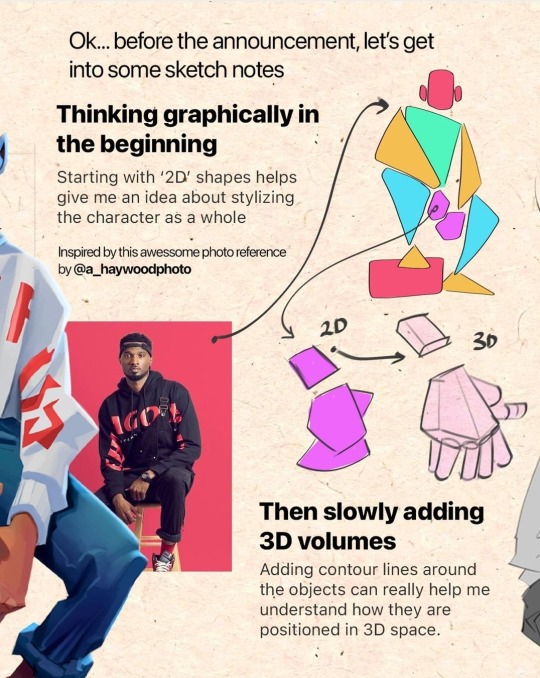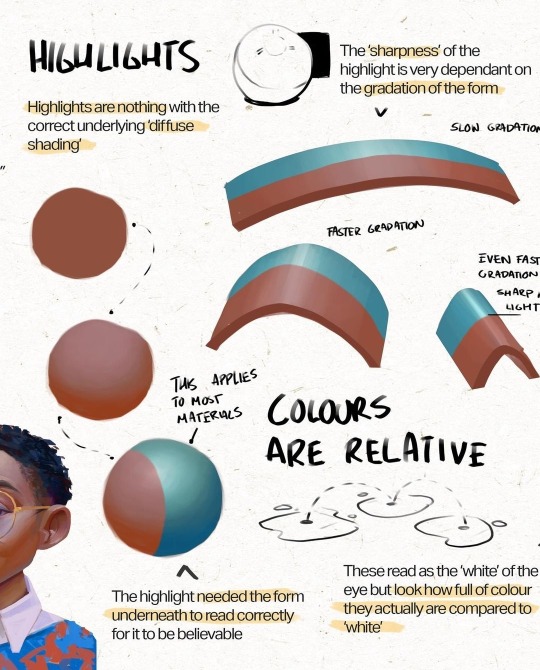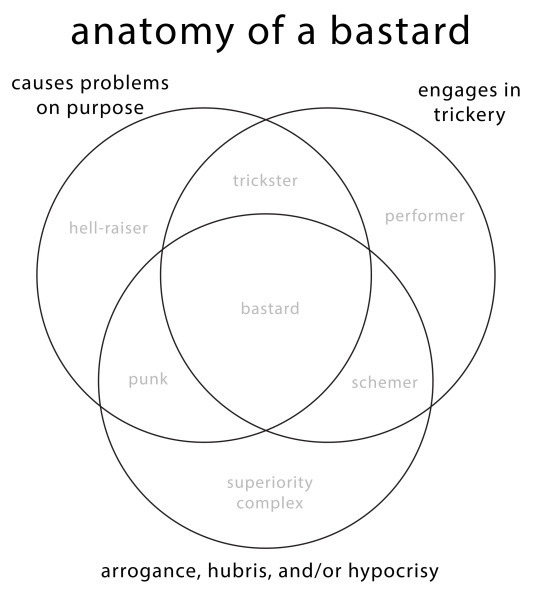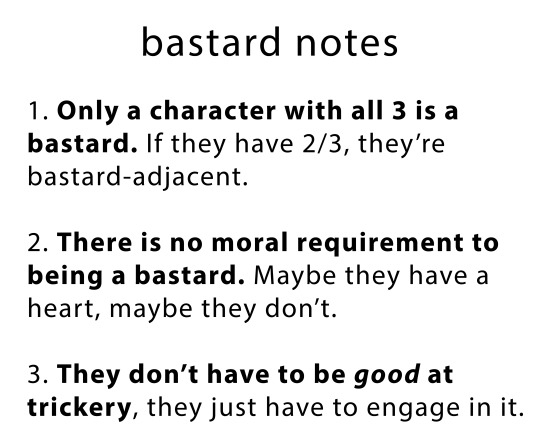Text
hey guys so apparently this is a thing a lot of people don't realise but like. if you have had writer's block/ art block for like. six months. a year. two years. that's maybe not a block. that's maybe depression. and you should maybe look into treating the source of the problem instead of just beating yourself up for not being able to write/draw. be kind to yourself and know that your struggle to create isn't based in laziness or a lack of skill or talent.
53K notes
·
View notes
Text
I ❤️ self-loathing characters, characters who struggle with monstrosity (either fearing or embracing it), characters who are so lonely, who have a gaping hole in their chest, who bottle up & repress their feelings, who claw their way up & have ambitions, who fall down & lose everything, who search for identity & purpose yet can’t see themselves outside of what others want from or expect of them, who are hurt & hurt others, who long & grieve, who lie & pretend. characters who are messy & flawed & human
39K notes
·
View notes
Text
animated fantasy films just don’t make fucked up evil castles like they used to
#radhika i fucking promise you#there will be so many fucked up evil castles that are now#whats that term#abandoned and deserted with pedh paudha and like
83K notes
·
View notes
Note
when's the birthdays of everyone significant from the vasuverse
here's the birthdays
Vasu: June 18
Addie: September 9
Kalyani: October 20
Serhan: January 30
Sufiya: May 10
Airah: November 15
---
i think these are all the major characters. i don't have vasu's parents in here because they haven't shown up in any of my little vingettes yet
2 notes
·
View notes
Note
hiiiii me vasu hello hiii please tell us what is the most cherished inanimate object u have in ur home please sir
The best thing I have in my house is probably my old stuffed animals - I've had them for a long time, since around middle school. I gave them to Serhan and Sufiya when they were younger, and they gave them to Airah when she was having a particularly hard night soon after we got her.
-Vasu
4 notes
·
View notes
Note
hello dr adeline pls recommend a queer studies book 🤲🤲🤲
I will always recommend Jasbir Puar's Terrorist Assemblages - it's a great introduction to queer Asian studies and makes various points about the state of queer rights in the US right now.
My work is mainly focused on queerness in the US so there are few books I can recommend about other countries with confidence, unfortunately.
- Adeline
2 notes
·
View notes
Text


Was working on some skin tone grids and thought I'd share for any other artists out there ^^
(Please give credit when sharing, especially off-platform)
2K notes
·
View notes
Text








Sketch Notes by ben_eblen_design
Check out the artists Gumroad for more in-depth versions of the tutorials!
4K notes
·
View notes
Text
How to self study a language without a textbook or course

Hi! I have a very short attention span, and I rarely find it in me to enjoy using only one resource to learn a language, so I often rely on immersion and actively using the language right from the beginning to learn languages. I’ve done this with pretty much all my languages, and it has worked out pretty well for me so far, especially with French! This is heavily inspired by this article on the medium, which changed my whole outlook on languages. I hope I can offer some helpful advice!
Starting off (A0 –> A2)
First of all, you’re going to have to set your goals in the language. What do you want to do in your target language? Do you want to be conversational or fully fluent? Do you want to focus on all the skills (reading, listening, writing, speaking), or only a couple? Which accent/dialect do you want to choose? Set your goals, and give yourself some habits to start sticking to.
In most cases, I would advice learning the alphabet and the pronunciation at first. For the alphabet, find a guide online and learn the stroke order. Keep on writing it over and over again. For languages like Mandarin Chinese or Japanese, where you have to memorise characters, try and memorise the most common characters. Also, find a pronunciation guide on YouTube or somewhere online, and immediately start working on it. Once you have a general idea of what the sounds are, start speaking and try to shadow natives (i.e. repeat what they say after them with the same intonation - you can do this with YouTube videos, or beginners exercises online). To practice both of these at the same time, you can try reading out loud, and maybe try dictating what you hear sometimes.
Start listening to the language a lot. Try and listen to YouTube videos and podcasts, and get used to the sound of the language. You might even want to watch a TV show or anime in your target language with English subtitles. I’d also recommend reading and listening at the same time, so if you have subtitles in your target language, then that could be great too. The more exposed you are to the natural use of your target language, the less unintelligible they will seem.
Memorise some basic vocabulary and phrases. There are loads of articles online that have basic vocabulary lists and phrases in different languages (there are even some on this website). Try memorising a few of them. In terms of what exactly you should learn vocab for, I would recommend learning vocab lists for these: numbers, subject pronouns, common greetings, the most common verbs (the first 100 should do) and their most common conjugations, days of the week, months, seasons, years, how to tell the time, how to talk about the weather, family, colours, house vocab, food, money and shopping phrases, common adjectives, common places, adverbs, parts of the body and medical vocabulary (I got all of this from this post). It’s a lot, but it will give you a strong foundation. You can then start learning vocabulary for your interests specifically. You can do this using multiple methods. First, you could use flashcards, like anki, memrise and Quizlet. You could also play around with apps like Duolingo or Lingodeer. Also, you could write them down, and keep testing yourself on them until you have them memorised (both target language to english, and english to target language). Make sure that you have audio, and that you know how the word/phrase sounds, and the pronunciation.
Start speaking with someone online. I recommend apps like Tandem and HiNative. Start trying to have conversations of basic topics straight away, and make sure you get corrections. Look up the words as you go.
Memorise a few basic grammar structures. This is especially important for languages like Korean or Japanese, which have extremely different grammar structures to English. Learn basic present, past and future tenses, along with basic articles and determiners, agreement, reflexive verbs, basic particles, negation and gender.
Immerse. I would recommend starting off with posts and videos that offer advice about things, since the language used in these tend to be simplistic, but topic specific. You can also use apps like LingQ. When practicing listening and reading, you can use the advice in these two posts (listening, reading). Don’t memorise every word you come across, and slowly try to ease yourself in.
Making the leap to the intermediate stage (A2 –> B1)
Vocabulary: I’ve already talked about methods of memorising vocabulary earlier, so I won’t talk about it again. As for what you should be memorising, I would suggest basing it on your interests and topical issues. When you immerse, and come across certain interesting words, then memorise them. You can also explore the tag for your target language on tumblr, and try and memorise some of the in depth vocabulary lists on here.
Grammar: I would suggest finding a specification, or list of grammar structures for the intermediate level, and learn all of them using articles and youtube videos. Then, try and use the rules regularly in your speaking and writing and receive corrections. Also, do practice questions.
Listening: I have gone in depth on how to practice listening in the post I mentioned earlier, so I won’t elaborate too much. Overall, I’d say that it is better to make sure that you are listening to the language a lot, and that what you are listening to is comprehensible input.
Reading: Find some learners exercises online, and keep doing them. You can also just generally try to read more, based on your interests. I would also suggest to apply the methods from the post I mentioned earlier.
Writing: Try and write a few sentences every now and then, and use your new grammar structures and vocabulary as much as possible. Make sure that you receive corrections. I have gone in depth on this subject in this post.
Speaking: Find a speaking buddy online, and try and organise meetings, where you just try and practice speaking. Look up words you don’t know, and be brave: most people are kind, and won’t mind if you make mistakes, so keep trying to move forward.
Going from intermediate to conversational (B1 –> B2)
Vocabulary: Focus on your interests, and areas that will be useful to you. Make sure that you actually use the words that you are memorising while writing and speaking.
Grammar: I think the same advice as the beginner to intermediate stage is applicable here.
Listening: Listen to both intermediate podcasts and YouTube videos in the target language (innovative languages, iyagi, dreaming spanish, a piece of french, InnerFrench etc.), and also to native material (youtube videos, films, TV shows, vines, tiktoks etc.) that you find interesting. Use transcripts or subtitles (in the target language) to memorise new vocabulary, and then keep repeating the audio until you understand everything.
Reading: Read whatever you can get your hands on, as long as it is reasonably simple enough. I would recommend kids books, and also translations of books that you have already read in your target language.
Writing: Try starting a journal in your target language, and also try writing letters/e-mails to people, and maybe write some essays on topical issues. Once again, make sure that you get corrections.
Speaking: Continue having conversations with people in your target language. Let yourself make mistakes and be corrected, because that is the only way to improve. For your accent and pronunciation, shadow native material (I use Easy Languages for this).
This is as far as I have gotten in terms of my self-study journey, so I’m afraid I won’t be able to offer much more advice. When I eventually reach an advanced C1 level in a language, then I’ll definitely make a post about that. Thank you for reading this post! I hope it was useful to you!
2K notes
·
View notes
Text
Love it when my ocs develop themselves. One of them will come up to me out of nowhere like „Yo I like cake.“ and I’m like alright cool I’ll make sure to add that to your character information
26K notes
·
View notes
Text
Indian academia
Recently I have seen a lot of excellent posts in the dark academia tags which call out the euro-centrism of this subculture and also give great recommendations for non-white cultural academia. So I decided to put together works of Indian authors that I read growing up in India as a literature student. Please note this list leans heavily towards works centred on Bengal due to my own heritage, and is by no means comprehensive or meant to represent the entire, varied diaspora of India.
Historical/political fiction:
the lives of others by neel mukherjee: chronicling the rise and fall of a bengali family against historical events like the partition, the 1943 famines, the bengal emergency etc. diverse cast of characters retelling history through multiple povs, lyrical prose, incredible research providing an insight into naxalite bengal. talks about how it feels to be a leftist when you are born and brought up in bourgeois privilege.
the lowland by jhumpa lahiri: everything!! written by jhumpa lahiri!! should be savoured!! but this gorgeous book in particular made me UGLY CRY. to summarise without spoilers, it's a story about two brothers, separated by inches and then by miles, a story about student revolutionaries, bengal burning and boston beaches, and it's a story about a beautiful, brilliant, tormented woman who loves and loathes in equal measure.
the shadow lines by amitav ghosh:** intergenerational trauma, dhaka riots and the entwined histories of two families- one in london and the other in calcutta. sharp, bittersweet and sometimes rather scandalous. if you enjoy ggm's works try this.
a flight of pigeons by ruskin bond**: after her father is killed in the 1857 sepoy mutiny, an anglo-indian girl, her mother, and female relatives are given shelter by the muslim family of one of the chief rebels. set in north india near UP, ruskin bond's writing is powerful and explores found families and the price of imperialism and war. chef's kiss.
train to pakistan by khuswant singh: the horrors of post independence sectarian violence as recounted by a fictional village on the indo-pak border with a population largely comprising muslims and sikhs. a harrowing read but evocative and honest.
shalimar the clown by salman rushdie: allegorical story about the kashmir valley unrest, told through the insane, shakespearean revenge tragedy spun out by kashmiri tightrope walker shalimar who falls in love with boonyi, a beautiful pandit girl, a love that dooms him.
a fine balance by rohinton mistry**: four strangers' lives spill into each other as india crumbles under the 1975 emergency. this one has everything political commentary, social satire, depiction of economic hardships and a whole range of characters from diverse backgrounds. side note: it's a pretty heavy and tragic read, please be careful.
Societal stories
the guide by rk narayan: raju, an impoverished, street smart boy in a fictional south indian town takes to conning people as a tour guide but things spiral out of control when he has an affair with a married classical dancer. allegorical writing, funny and eccentric, and there's a LOT of satire about desi stereotypes: fraud religious leaders, scandalous village affairs, neocolonial mindsets and well, dancing. had a great read of this one. don't watch the film, it's inaacurate and the author himself didn't like it :(
malgudi days by rk narayan: set in the same town as the guide, a collection of short stories about the colourful lives of small town dwellers, from astrologers to doctors to postmen. it's funny and poignant in equal measure. there's not a single mediocre story in here, they're all just......charming.
interpreter of maladies by jhumpa lahiri: stories set in boston and bengal about ordinary indian people and ordinary indian lives which are just so, so MASTERFULLY written and in such crystal bright detail it feels all too real. I recommend a temporary matter, when mr pirzada came to dine, sexy, mrs sen and this blessed house.
em and the big hoom by jerry pinto**: a goan family in late 20th century mumbai + their experience when the mother is diagnosed with bpd. I haven't read this book but it was highly recommended by my friends + authors who are greatly esteemed by me
any and every work by ruskin bond because my man literally GREW up around ayahs and tonga drivers and lonely gardeners and sad kite-makers and friends in small places. I recommend road to the bazaar: a collection of short stories about north indian children involving tigers in train tunnels, beetle races, rooftop gardens and the feeling of being home again.
the white tiger by aravind adiga**: epistolary novel that deals mostly with the class struggle in india as told by a village boy, who travels to delhi for work and his slow rise to success through monumental obstacles. a good read to look into the lives and the plight of underprivileged workers and the persisting class disparity in globalised india.
city of djinns by william dalrymple: travelogue/memoir/anecdotes of the author's time in delhi as he researches for the detritus of history in the country capital. non fiction but every bit as riveting as a well spun story.
Retellings/Biographies
rajkahini (transl: stories of kings) by abanindranath tagore: stories about the rajput rulers of western india and their glorious, semi-mythological histories of battles and heartbreaks and visions. the author was often termed a lyrical artist because his descriptive prose is so good it feels like a painting put into words.
empress: the astonishing reign of nur jahan by ruby lal: a feminist biography of my favourite figure from history, nur jahan, and her deliciously satisfying ascent as the sole female sovereign in the line of the great mughals. but wow, what a woman.
the palace of illusions by chitra banerjee divakaruni: retelling of the great epic mahabharata but from draupadi's point of view. poetic and magical, and her descriptions of female rage and the unfairness of society even in mythical canon is SUPERB.
Poetry!
sarojini naidu: patriotism, society, feminism, romance
nissim ezekiel: postcolonial, satire
ak ramanujan: society, classical retellings, folktale inspired poetry
agha shahid ali: socio-political, ghazal inspired poetry
tishani doshi: feminist, contemporary
eunice d'souza: contemporary, gender politics
Pure self indulgent recs
hayavadana by girish karnad: a ridiculous, criminally hilarious play-within-a-play about a love triangle and accidental body/torso swaps and a goddess who couldn't care less and a man with a horse head. yeah.
devdas by sarat chandra chattopadhyay: pls stop shoving the movie down my throat it's the cringiest depiction of bengali culture ever but yeah the novel is 💗💗 and it's about childhood sweethearts dev and paro, the cost of obsessions and lusts and an enigmatic courtesan chandramukhi who keeps loving the wrong things.
any and every work by rabindranath tagore should be considered academia but in particular his short stories, like the kabuliwalah and the postmaster.
the byomkesh bakshi series by sharadindu bandyopadhyay: written in the vein of poirot but in colonial bengal, follows one (1) sleuthy boy and his sidekick as they unravel psychological crimes and murder mysteries. some stories are just genuinely scary and all have eclectic casts. sharadindu said homoerotic/feral women/immoral genius people rights!
Like I said this list is not comprehensive!!! But I tried my best!!! I think we should really try to decolonize our reading tastes. And yes I purposely left out Arundhati Roy (because she is literally the only Indian author ever recommended in lists) Vikram Seth (because I do not like him) and Roshani Chokshi (because any one of the above)
I hope you guys get some good picks from this list :)
[** has heavy trigger warnings]
16K notes
·
View notes
Text
“As far as words go, ‘crying’ is louder and ‘weeping’ is wetter. When people explain the difference between the two to English-language learners they say that weeping is more formal, can sound archaic in everyday speech. You can hear this in their past tenses—the plainness of ‘cried’, the velvet cloak of 'wept’. I remember arguing once with a teacher who insisted 'dreamt’ was incorrect, dreamed the only proper option. She was wrong, of course, in both philological and moral ways, and ever since I’ve felt a peculiar attachment to the t’s of the past: weep, wept, sleep, slept, leave, left. There’s a finality there, a quiet completion, of which ’d’ has never dreamt.”
— Heather Christle, from The Crying Book
35K notes
·
View notes
Text
One of the best tips for writing descriptions of pain is actually a snippet I remember from a story where a character is given a host of colored pencils and asked to draw an egg.
The character says that there’s no white pencil. But you don’t need a white pencil to draw a white egg. We already know the egg is white. What we need to draw is the luminance of the yellow lamp and the reflection of the blue cloth and the shadows and the shading.
We know a broken bone hurts. We know a knife wound hurts. We know grief hurts. Show us what else it does.
You don’t need to describe the character in pain. You need to describe how the pain affects the character - how they’re unable to move, how they’re sweating, how they’re cold, how their muscles ache and their fingers tremble and their eyes prickle.
Draw around the egg. Write around the pain. And we will all be able to see the finished product.
84K notes
·
View notes
Text
“WRITE IT BADLY. Write it badly, write it badly, write it badly, write it badly. Stop what you’re doing, open a Word document, put a pencil on some paper, just get the idea out of your head. Let it be good later. Write it down now. Otherwise it will die in there.”
— Brandon Sanderson on overcoming writer’s block to create a first draft as a professional author (via almost-always-eventually-right)
96K notes
·
View notes
Text
[“When I used to teach creative writing, I would tell the students to make their characters want something right away—even if it’s only a glass of water. Characters paralyzed by the meaningless of modern life still have to drink water from time to time. One of my students wrote a story about a nun who got a piece of dental floss stuck between her lower left molars, and who couldn’t get it out all day long. I thought that was wonderful. The story dealt with issues a lot more important than dental floss, but what kept readers going was anxiety about when the dental floss would finally be removed. Nobody could read that story without fishing around in his mouth with a finger. Now, there’s an admirable practical joke for you. When you exclude plot, when you exclude anyone’s wanting anything, you exclude the reader, which is a mean-spirited thing to do.”]
kurt vonnegut
11K notes
·
View notes


